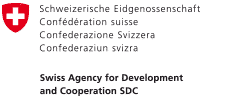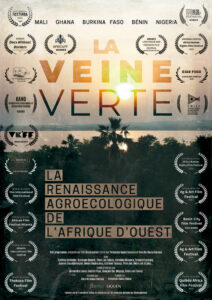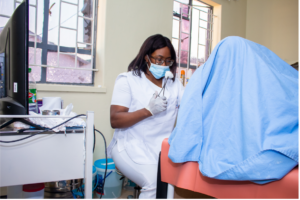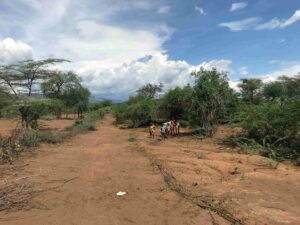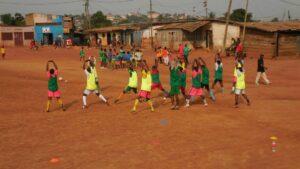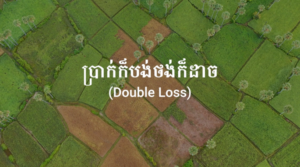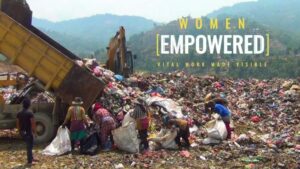‘Ahead of its time’: A Swiss research partnership powers global development solutions
Some of the most pressing social and environmental challenges may seem intractable. From poverty and unemployment to expensive housing, greenhouse gas emissions and deforestation, countries around the world are scrambling for answers.
But sometimes, the solutions are hiding in unlikely places.
Take the humble coconut. About a decade ago, a team of young Swiss engineers exploring sustainable building materials thought to look into the tropical fruit for answers.
Picture the shell of a coconut cracked open. To get to the edible nut inside, you’ll first have to peel off a fibre that surrounds it, called the husk. A huge volume of unused coconut husks are thrown away year after year in countries like The Philippines, where the fruit is part of every-day life. That’s where the researchers turned entrepreneurs saw potential. What if the wasted raw material could be transformed into a valuable resource?
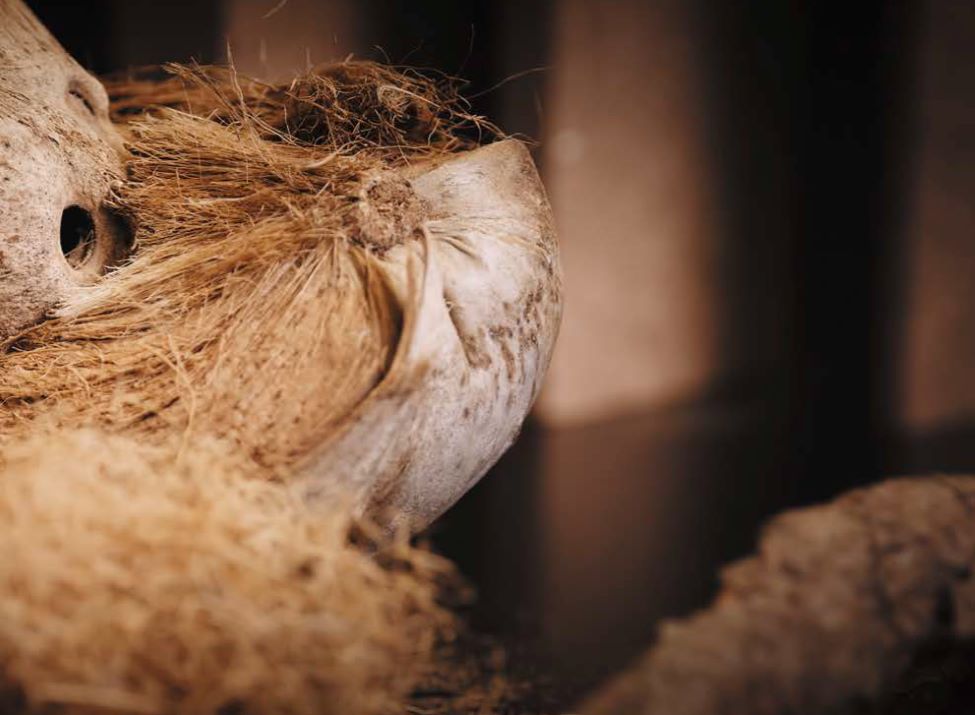
Fast-forward to today, and their invention is now edging closer to the European market as a sustainable alternative to MDF and solid wood. An innovative material engineered with husk fibres, the Cocoboard boasts a 100% bio-based make-up designed in Switzerland and sourced sustainably in The Philippines—creating jobs, boosting low-cost housing, and supporting local farmers along the way.
The R4D programme—a joint initiative of the Swiss Agency for Development and Cooperation (SDC) and the Swiss National Science Foundation (SNSF)—plays a pivotal part in the origins story of the Cocoboard, and in dozens other research projects designed to boost global development over the past decade.
A global vision
The reality is that most great inventions don’t materialise out of thin air. It takes years of research and practice to turn an idea into a concrete product or innovation. This means initiatives which nurture them are vital to a project’s chances of success.
That’s where the R4D programme comes in.For the Cocoboards venture, a small grant helped the inventors to set up a business plan and start-up firm, supporting a crucial step on the journey to today’s market-ready product.
On the whole, SDC and SNSF co-funded the programme with roughly CHF 100 million between 2012 and 2023. The funds offered selected research-based projects a chance to make concrete steps towards a global vision linked to the sustainable development goals (SDGs) adopted by the United Nations—helping to reduce poverty, curb global risks, and contribute to sustainable development as a path to solving urgent problems in Africa, Asia and Latin America.
Concrete actions
Financial support from the programme brought together researchers from the Global South and Switzerland through 57 projects that innovated, influenced policy and raised awareness about global issues that matter for people, economies and the planet.
New products were created—among them, an Android app helping to save ancient pome forests in the mountainous wilderness of Central Asia. Data collected through the app is supporting scientists, citizens and local inspectors working to shield the precious apple trees from a deadly bacterial disease.
Evidence-based solutions were pushed up the political agenda. One project persuaded government officials in Togo and Burkina Faso to renew investment in career counselling, a critical support for young graduates aspiring to decent work. In Kenya, researchers helped shape a national strategy to tackle invasive plants that threaten landscapes and livelihoods. And in Rwanda, policymakers welcomed the ‘saving agencies’ designed to financially support women in casual agricultural work, who are among the poorest in society.
Projects raised the voice of science and marginalised groups in high-level forums—among them, the case of Bolivian Indigenous peoples empowered to influence national conversations on food, including the country’s position at the UN Food Systems Summit. Other research teams presented evidence-based views on women’s rights, in some cases through input into international human rights instruments, such as the UN’s Guiding Principles on Business and Human Rights. Some initiatives tapped creativity to raise awareness about important issues. The unique ‘Food Systems Caravan’ spread knowledge on food security in West Africa over a 50-day roadshow, a journey which also produced the research documentary ‘The Green Vein’. A separate documentary film on inequality and conflict was screened at UN headquarters in New York. And one project looked into gender rights in Africa through the lens of girls’ participation in soccer clubs.
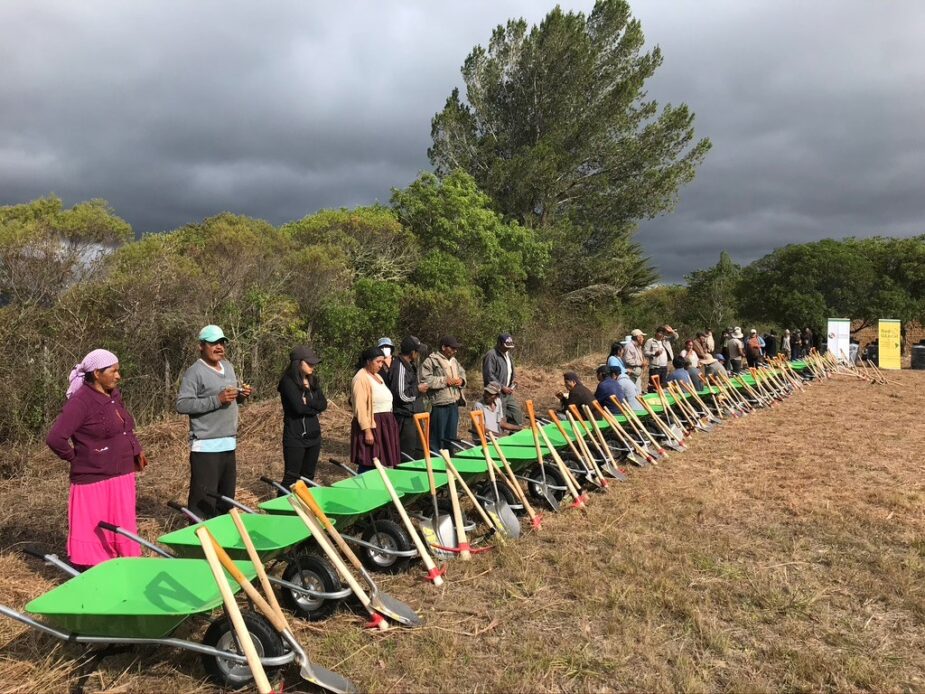
A pathway from research to impact
Support from the R4D programme can help to move the needle of change in a positive direction. But each initiative takes its own journey–starting from the production of knowledge, through to the impact that knowledge can make by guiding action. Breaking down that journey into three milestones is one way to visualise how far R4D projects have progressed along that path (see Box 1).
Through hundreds of published articles, policy briefs and workshops, more than 80% of all projects transferred the information they generated to relevant stakeholders. At least half of them succeeded at raising awareness and saw evidence of the information they generated being used. And some 75% of the projects report having some impact on policy, with more than 40% bringing their results into global debate forums.
Innovating into a ‘living lab’
Behind the scenes, the work needed to support those results took the R4D programme on its own journey.
An external evaluation found R4D was itself a product of innovation and “ahead of its time” by embracing the following principles (BSS, 2023):
- A design that supports interdisciplinary and transdisciplinary research
- Focus on development and sustainability challenges
- Activities that aim for transformation—even before the UN’s 2030 Agenda took shape
- Directly involving the Global South in the effort to attain the SDGs
A decade later, these concepts may sound familiar, having been adopted since by other funding initiatives such as the European Union’s Horizon 2020 programme. Still, according to the evaluators, combining them into one programme remains novel to R4D.
Being ahead of the game hardly ever comes without a challenge. The programme had to work hard to define these concepts so they could be applied in practice. R4D turned into a ‘living lab’ in the process, enabling SDC and SNSF to experiment with novel ideas about how to propel research-based solutions for development.
Joint investment for a better future
The pioneering spirit hasn’t gone unnoticed. Many of the researchers who led R4D projects say they know their projects were unlikely to find support from other sources.
In coming together to create a forward-thinking programme in R4D, the SNSF and SDC produced an impact greater than the sum of its parts: according to the evaluation, each organisation would be hard pressed to achieve the same results without the other.
A decade later, transdisciplinary research that directly involves the Global South is widely seen as critical for the success of the 2030 Agenda for Sustainable Development and its embedded SDGs. Funding initiatives that may have once seemed unusual are now essential–and in the face of the existential challenges that humanity faces today, the principles embraced by R4D are more relevant than ever.
The programme’s successor, SOR4D, has adopted an even stronger focus on solutions, heeding a call for more research-based knowledge to advance sustainable development goals in this UN-designated “Decade of Action”.
It builds on a solid foundation. R4D’s results show that transformative research can deliver both scientific excellence, and real-world impact.
Box 1: Signs of impact identified by an external evaluation of the R4D programme (BSS, December 2023)
STEP 1–transfer of information to relevant groups
Over 80% of projects report reaching this milestone.
Results produced by R4D funded research were communicated via:
– 474 peer-reviewed articles
– 644 workshops with local communities
– 77 policy briefs or knowledge databases
STEP 2–groups take in the information and make an effort to use it
Approximately 70% of projects report reaching this milestone.
More than 50% of projects report considerable success in raising awareness of their research topic.
STEP 3–capacity of the information to influence action
Just under 50% of projects report reaching this milestone.
More than 40% of grantees reported successfully bringing the results of their research into relevant channels of international debate.
Around 75% of all projects engaged with policymakers and succeeded in having at least some policy impact.
Box 2: Global impact highlights: How r4d projects are making a difference around the world
CREATING A PRODUCT
An app to fight disease in Central Asia’s ancient forests
- The problem | In Central Asia, home to the original apple tree, pome fruits are under threat by fireblight—a bacterial disease that can turn a healthy tree pitch-black, killing it within one season.
- The solution | The R4D project created a smartphone app which helps raise awareness about the disease and monitor its spread. Any local person who spots an afflicted tree can upload its location on a map through the app. A rapid test was also developed to detect fireblight.
- The impact | The app is available for Android phones in European and local languages. The rapid test is now integrated in a training programme for fireblight inspectors.
- The big picture | Before the R4D project there was no plan in place to manage fireblight and prevent spread of a disease that could decimate ancient apple varieties.
Sustainable building material made with coconut sourced in The Philippines
- The problem | Decades of deforestation has stripped The Philippines of its wood supply, raising the cost of wood as a building material. Meanwhile, millions of coconut husks are discarded in farms around the country.
- The solution | The R4D project helped young inventors to develop a sustainable business for the Cocoboard, an innovative 100% bio-based board made from coconut husks and natural adhesives from tannin extracts.
- The impact | The Cocoboard is now marketed as a sustainable alternative to wood-based panels. Plans are underway to develop the supply chain, make the boards commercially available and expand to other countries.
- The big picture | Products built on circular economy principles can help reduce carbon emissions and deforestation. This is the first known use of coconut husk fibres on an industrial scale, with the potential to create jobs and strengthen low-cost housing.
Vocational training to access work in Nepal and Costa Rica
- The problem | Technical vocational education and training (TVET) is known for successfully preparing students to enter the labour force, but policymakers have little evidence on how to increase its effectiveness.
- The solution | The R4D project adapted the Swiss system for use in low-resource countries, leading to the development of a TVET programme in Costa Rica and a new Masters programme in Nepal.
- The impact | Knowledge transfer has helped partner countries to reform relevant policies and adopt TVET, improving the chances of better work for young people.
- The big picture | Any country whose young people face high unemployment and bad working conditions is likely to suffer economic and social problems.
A tool to assess food sustainability in Kenya and Bolivia
- The problem | The journey of a crop from farm to plate goes through a long, invisible and complex supply chain with different players. Too often, it’s small farmers who lose out – but they don’t always know why.
- The solution | The R4D project developed a tool that offers a practical way to identify weak links in the food system. It also created the Virtual Food Sustainability Academy, a training platform in food system sustainability.
- The impact: A Spanish version of the training was implemented in Bolivia and an English version in Kenya. Dozens of students have been trained so far, and the training is getting integrated in curricula of partner universities.
- The big picture | By 2050, approximately 9 billion people will need nutritious food even as the resources to grow food are depleting.
INFLUENCING POLICY
Career guidance tools for aspiring entrepreneurs in West Africa
- The problem | Counselling based on psychology principles offers tools for better career decisions, but counsellors in Togo and Burkina Faso don’t have that kind of training.
- The solution | The R4D project adapted existing vocational guidance materials to the West African context and engaged with policymakers, helping to set up career counselling systems.
- The impact | Career guidance is now back on the political agenda in Togo and Burkina Faso. In Togo, counselling centres reopened; counsellors were trained and hired to work across the country; and locally appropriate psychometric tests are now used in counselling.
- The big picture | For many young people in West Africa, entrepreneurship is the only opportunity for decent work.
A national strategy to root out invasive trees in Kenya
- The problem | The invasive tree Prosopis juliflora is spreading fast in East Africa. Prosopis blocks waterways and trails, sucks up precious water from the ground, injures farmers and kills livestock.
- The solution | The R4D project analysed management options, identified actions for early detection and response, and helped design a decision support tool for local stakeholders.
- The impact | Input from the project shaped Kenya’s first national strategy to tackle Prosopis, and helped to put early detection and response mechanisms in place locally.
- The big picture | Low-income countries often lack enough capacity and resources to tackle the spread of Prosopis, despite the damage to ecosystems and livelihoods.
National strategies to manage oil palm sustainably
- The problem | Palm oil is lucrative for countries, corporations and smallholders in the tropics. But cultivating it harms the environment through deforestation and biodiversity loss.
- The solution | The r4d project integrated different types of knowledge and backed a collaborative approach to inform countries’ palm oil strategies.
- The impact | The project attracted interest from policymakers in Indonesia and Cameroon, and helped to establish local cooperatives that strengthened the agency of smallholders. It also contributed to managing oil palm-related conflicts in Colombia.
- The big picture | Palm oil policy often needs to bridge the opposing objectives of economic development and environmental conservation.
Better policies on taxation of natural resources
- The problem | Low-income countries can earn substantial sums for their natural resources. But governments often lose out when money is transferred illegally across national borders.
- The solution | The R4D project drew from economics, law and political science to analyse illicit flows of finance for critical resources in selected countries. It then developed solutions to improve tax policies.
- The impact | Taxation of natural resources is now higher on project countries’ political agenda. In one case, the knowledge generated found its way into legislation, enabling policymakers to improve mineral taxation laws.
- The big picture | Lost revenue from exploitation of natural resources undermines prospects for sustainable development.
Better HIV care in Lesotho
- The problem | In Lesotho, one out of four adults are living with HIV. But access to testing and care is a big challenge for people living in small villages scattered across the mountains.
- The solution | The R4D project provided HIV testing to more than 10,000 people in at least 60 villages door-to-door. It also established an HIV database and supported local healthcare infrastructure.
- The impact | The work was widely cited, and then incorporated into WHO guidelines as well as Lesotho’s national policy. A follow-up collaboration between Lesotho and Switzerland aims to develop an expanded programme for quality care in rural Africa.
- The big picture | HIV testing and care is key to keeping the virus under control in countries affected by the HIV/AIDS epidemic.
Savings to lift rural women out of poverty in Rwanda
- The problem | Women who do casual work in agriculture are among the poorest in Rwandan society. They often fall into a ‘poverty trap’ where wage work is the only option.
- The solution | The R4D project developed ‘saving agencies’, a simple way to save money. The collective scheme helps the workers to invest in production and well-being, and to help each other in times of need.
- The impact | Policymakers have shown strong interest, and the ‘saving agencies’ scheme has been adopted in various parts of the country.
- The big picture | Governments and agencies believe commercial agriculture can boost income and employment in rural areas, but not everyone stands to gain from that shift.
HAVING A VOICE IN GLOBAL CONVERSATIONS
Consultations with global economic institutions | The R4D project on illicit finance flows consulted with think tanks such as the T20 (ThinkTwenty) in advance of G20 meetings, and its results were discussed at prominent conferences such as the World Resource Forum, UNCTAD, and the OECD.
Influence on national conversations | The R4D project on food sustainability took advantage of a favourable policy environment to empower Indigenous groups and small farms in Bolivia, which helped apply its results to influence the country’s position for the 2021 UN Food Systems Summit.
Input into UN principles on rural women and human rights | An R4D project, which investigated how to ensure the right to food and gender equality, contributed to several global discussions, including the UN Declaration on the Rights of Peasants and the UN’s Guiding Principles on Business and Human Rights.
A documentary screened at UN headquarters | Three R4D projects that examined conflict and social cohesion came together to produce a documentary film, “Inequality and conflict – Beyond Us and Them”. The film was screened at a side event of a UN high-level forum meeting in New York, where the relevant SDG16 was discussed.
RAISING AWARENESS AND SUPPORTING CHANGEMAKERS
Changing the narrative on invasive species in East Africa | Knowledge generated and shared by the R4D project on tackling invasive plant species raised awareness of the risks, counteracting a positive narrative in the region: despite the damage they cause, invasive plants are sometimes seen as useful.
Upgrading waste management in South Asia | An R4D project on improving municipal solid waste management helped local NGOs to justify their work and boosted their advocacy to policymakers. Fresh ideas and new motivation to push for change followed a field visit to a pioneering location on solid waste management in India.
Advocating for gender equality through football in Africa | Girls and coaches participating in an R4D project, which examined girls’ participation in social life through youth soccer clubs, took part in a virtual conference to raise awareness of why gender rights matter for the continent.
Bringing Indigenous voices into power circles in Guatemala | An R4D project on tackling exclusion and discrimination of ethnic groups included Indigenous people as researchers, placing them in a rare position to raise awareness about the topic through interactions with members of Congress and businessmen.
A unique food security roadshow in West Africa | The R4D initiative Food Systems Caravan toured as a 50-day roadshow and communication campaign through five countries in West Africa. The goal: to bring key messages emerging from food security projects to a range of local institutions and the general public. This special journey produced the research documentary The Green Vein, and many other videos and documentaries.
Pushing change for women and peace in Indonesia | Through an R4D project on how gender informs conflict management and peacebuilding practices, a doctoral student became an influential advocate for women’s rights in Indonesia. She contributed to national action plans on gender and peace, initiated projects to support women living in poverty, and joined the ASEAN Women For Peace Registry.
Related Posts
The Green Vein: Agroecology Rising in West Africa
Beaucoup plus qu’un sport
WOMEN EMPOWERED: Vital Work Made Visible
Sources
Links:
- Overview of all funded projects: www.r4d.ch
- The successor programme SOR4D: www.sor4d.ch
- Final evaluation of the r4d programme: evaluation report
- Download pdf version of this article: r4d synthesis article
The Swiss Programme for Research on Global Issues for Development (r4d programme) is a joint funding initiative by the Swiss Agency for Development and Cooperation (SDC) and the Swiss National Science Foundation (SNSF)
